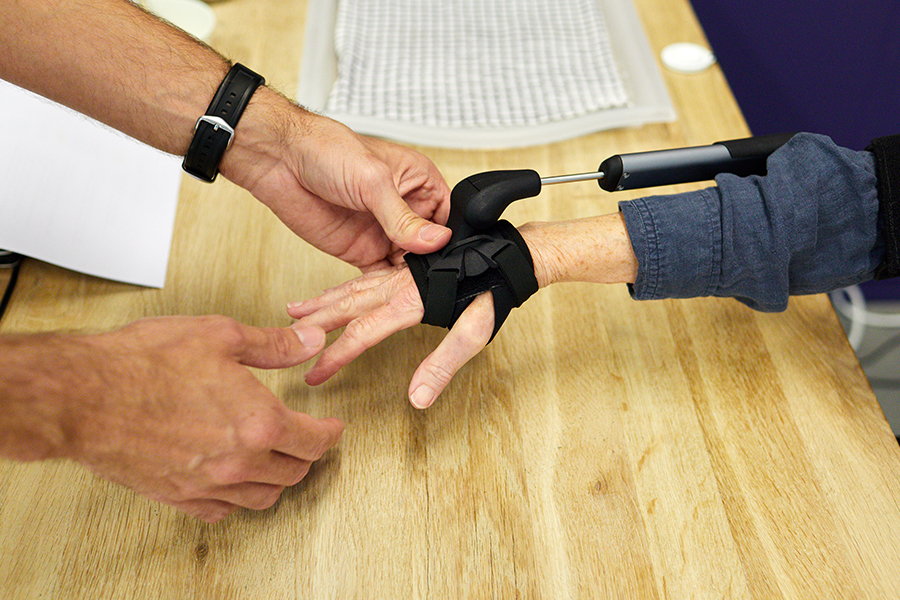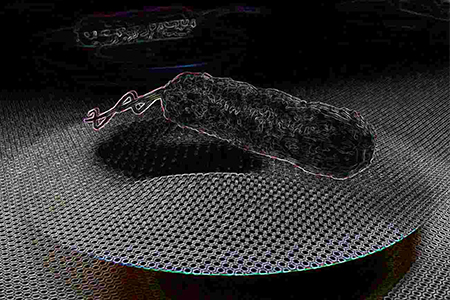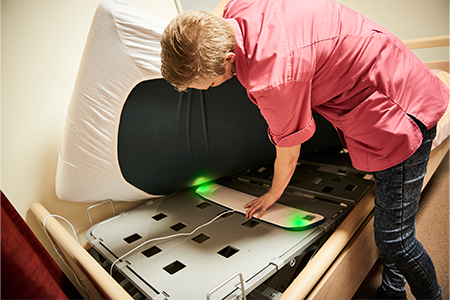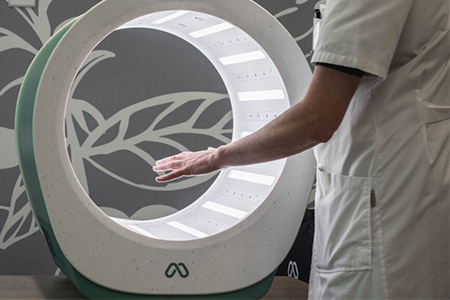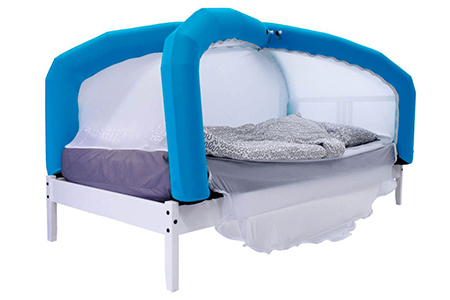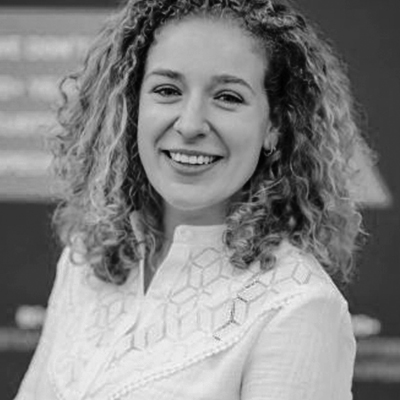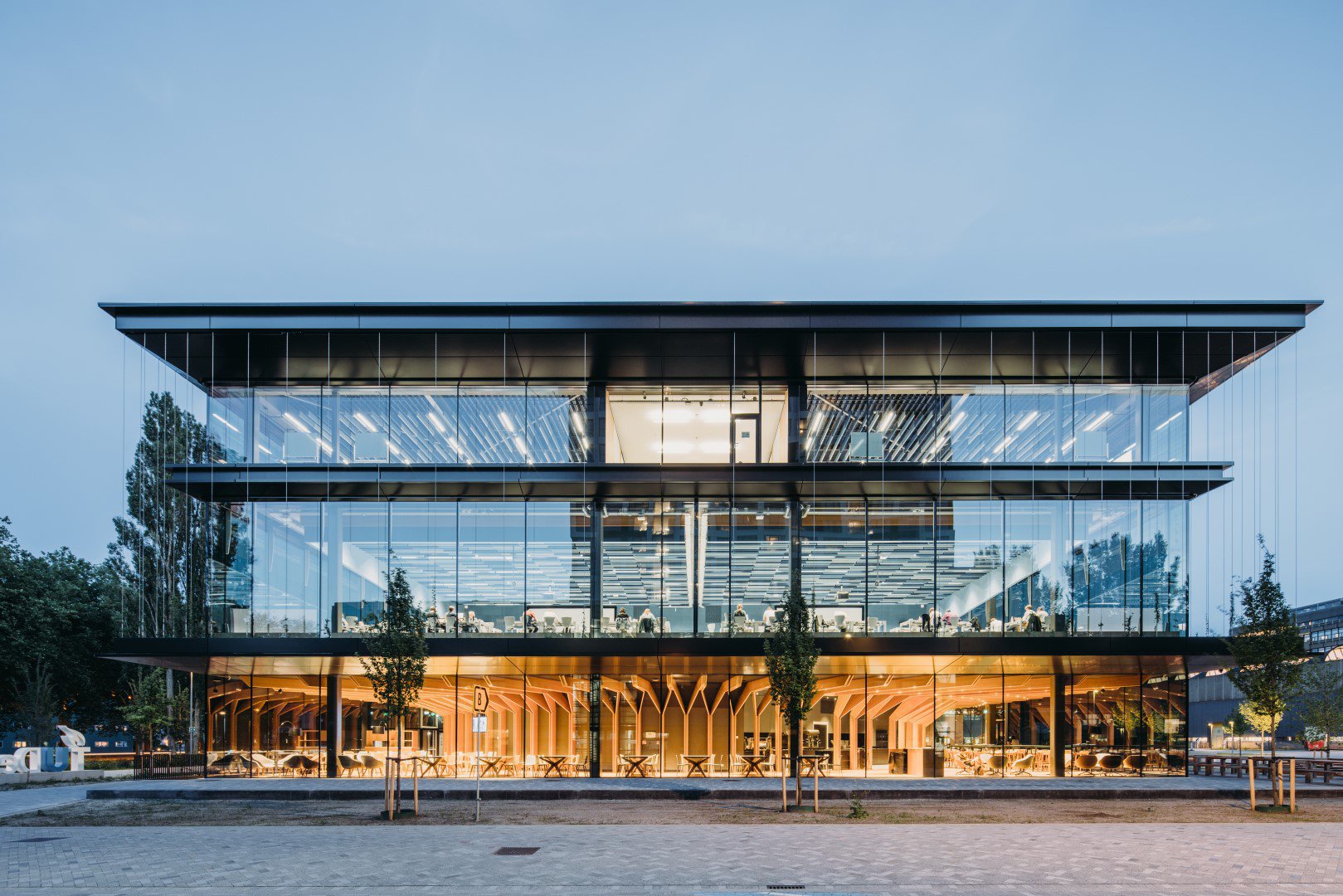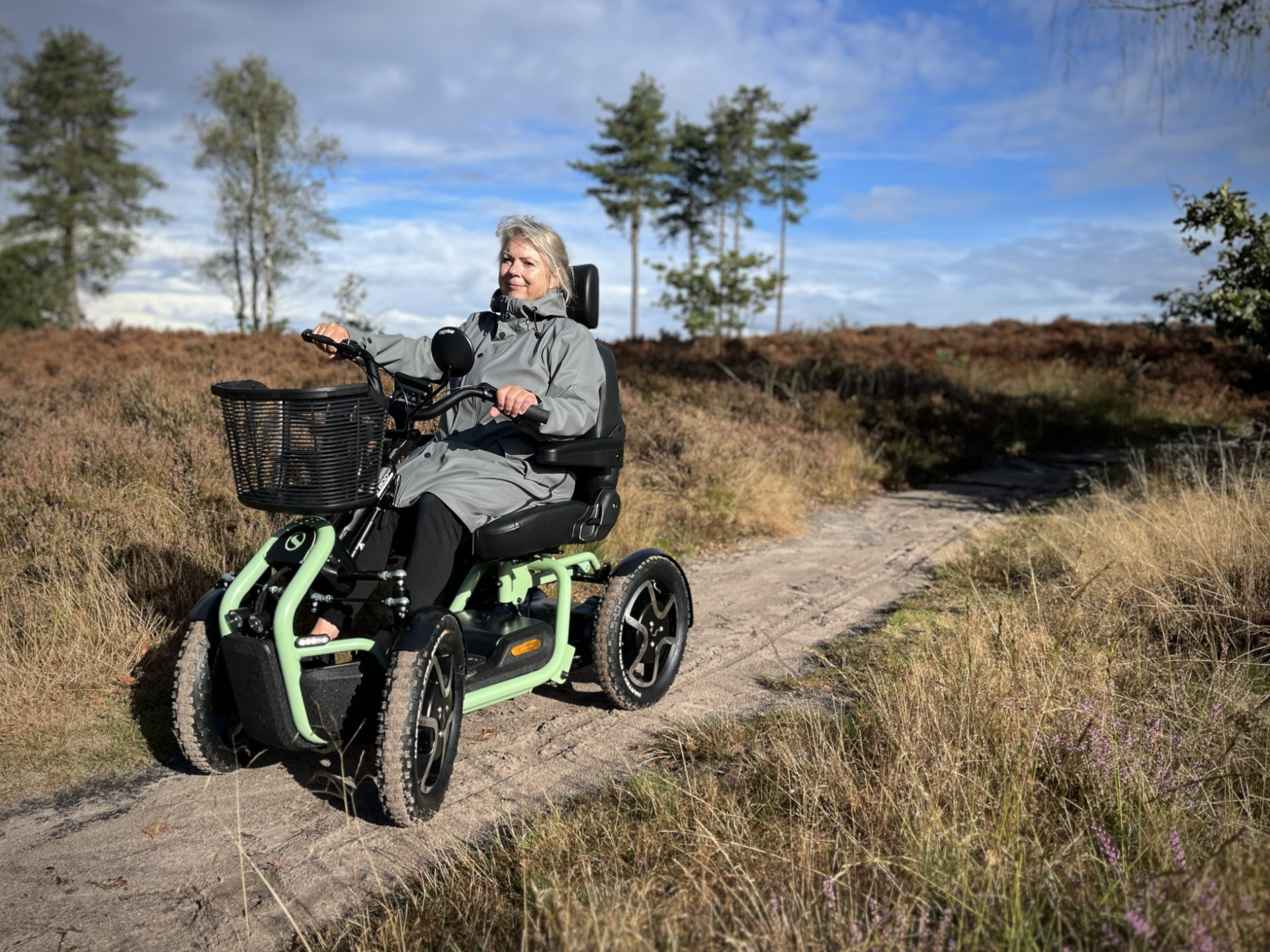Since 2016, Delft University of Technology, incubator YES!Delft and the Reinier de Graaf hospital have been working together to introduce, test and improve new medical technology, with Delft startups playing a key role in these developments. We sat down for a chat with Rik Schoffelen (medical physicist) and Daphne Wijffels (innovation coordinator) of the Innovation Platform. “Technical innovations can dramatically improve healthcare. And with our hospital and university of technology so close together, we practically have a moral duty to harness that proximity.”
The innovation platform plays a major role in the validation process of startups and helps kick-start innovation by getting them through the hospital door, Wijffels explains. “We put them in touch with our team of specialists, who can help startups fine-tune promising ideas and quickly get up to speed.”
Future-proofing healthcare
Healthcare is crying out for efficiency gains in daily operations and care delivery. Hospitals are under significant cost pressure already, with most spending at least 70% of their budget on staff, and now the labour force is ageing, many hospitals struggle to recruit enough staff.
‘Doing more with less’ will be a major theme in years to come, Schoffelen expects. “We have to future-proof healthcare, an industry that is notoriously resistant to change and prefers the safety of clinging to the past.” Schoffelen often compares the healthcare industry to the financial sector, highlighting the enormous progress made in financial automation over the past 40 years. “Healthcare is nowhere near that point yet, and we have a lot of catching up to do.”
Fortunately, the innovation platform can help the industry make up ground by bringing specialists from different fields in touch with startups from the TU Delft Campus ecosystem and TU Delft scientists and students, which creates new partnerships and insights to help make work easier, better or faster.
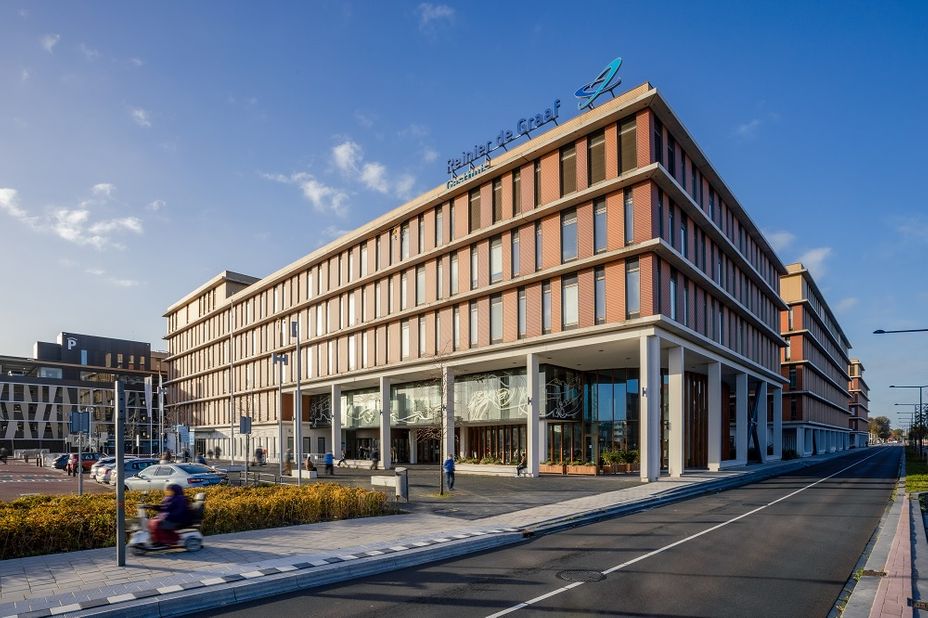
© Reinier de Graaf
Make it tangible
When a startup knocks on the door of the Reinier de Graaf hospital, the innovation platform first checks whether there is a match. Do nurses, doctors or wards consider the idea at all promising? The next step is bringing in the startup for a pitch. Schoffelen: “Importantly, we ask startups to stick to the facts and avoid commercial marketing talk. Our core team assesses new innovations by looking at several criteria, such as feasibility and the extent to which they can actually improve healthcare.”
Making innovation tangible can make all the difference for specialists, Schoffelen has found: “Take Slam Orthopedic, for example, which introduced a specialist bone drill here. Our surgeons initially responded that ‘they already had bone drills’, but once they got their hands on the device, they concluded that they effectively been working with mediaeval tools until that point.”
Our strict selection process helps us avoid wasting time. Giving startups the chance to engage with specialists right off the bat helps everyone get a clear picture of the innovation and accelerates the development of the underlying idea.
And when a startup is rejected, we don’t just show them the door, says Wijffels. “Even if we can’t find a match, we’ll still look for ways to help a startup move forward. We might introduce them to another party or healthcare institution that is a better match, for example, or pair them with a specialist who can help them validate or improve their product.”
Improving healthcare with a set of fresh eyes
Healthcare innovation goes beyond advanced technology used only by doctors such as MRI machines. What about tools that can help nurses keep working until they are 65 or new ways to transport patients around the hospital as optimally as possible? There is huge upside in these everyday actions in particular, Schoffelen and Wijffels both emphasise.
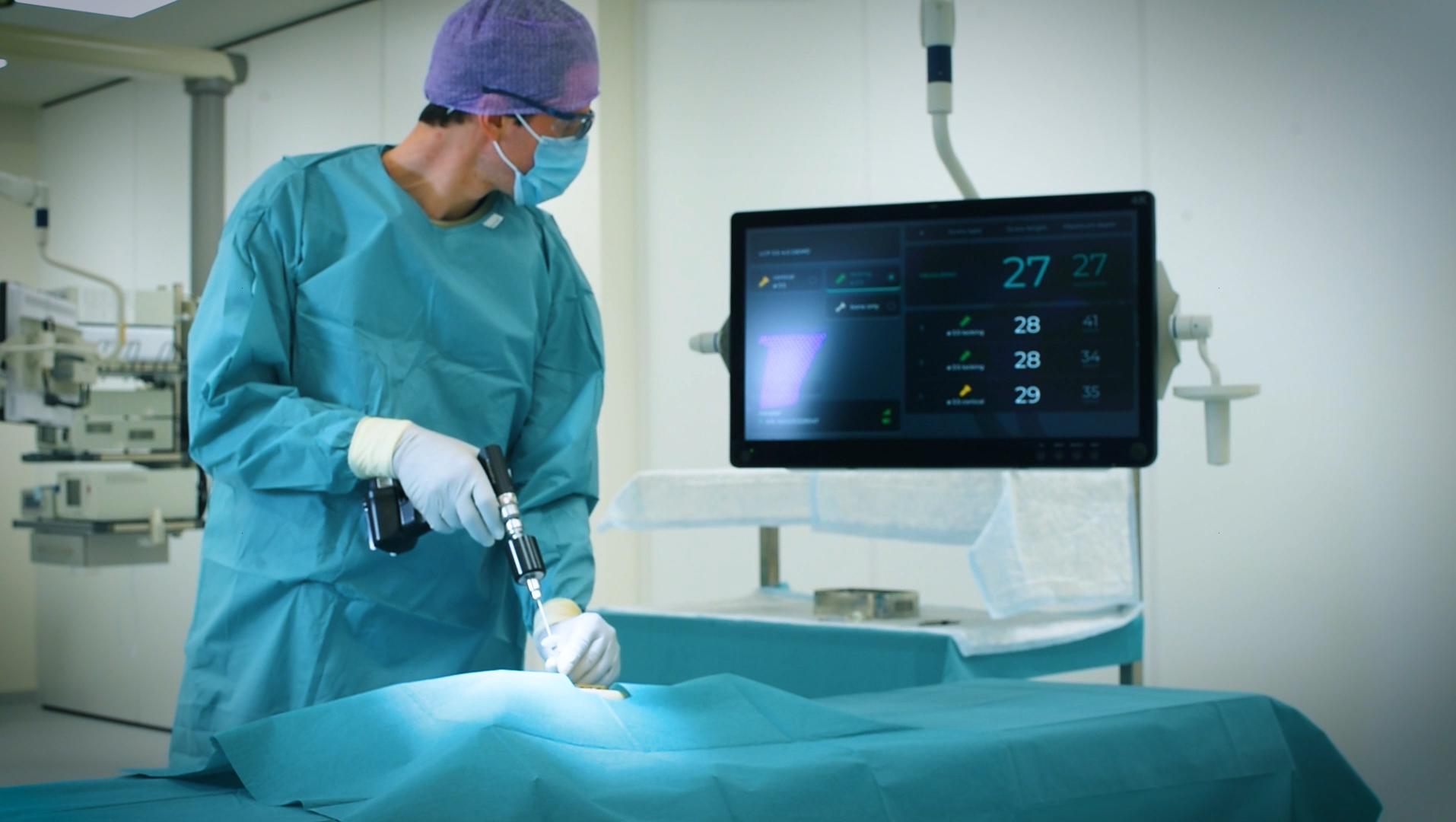
© Slam Orthopedic
It is precisely everyday healthcare that benefits most from collaboration between TU Delft, YES!Delft and the hospital, Schoffelen explains. “Students and startups tend to ask critical questions: ‘why are you doing X or why aren’t you doing Y?’ At the same time, we’ve found that healthcare professionals are learning to articulate their needs.” This helps startups, but more importantly it produces smart, practical solutions that benefit hospital staff and patients alike.
Leading the way in collaboration
Hospitals are always looking to improve treatments, medication and rehabilitation. Teaching hospitals often do most of the pioneering work, Schoffelen explains. “While these innovations are no less valuable for general hospitals, we have our own challenges to face, such as doing more with less and finding smarter ways to deploy our staff.”
The Reinier de Graaf hospital is one of the frontrunners in collaborating with innovative partners, Schoffelen and Wijffels say. “We’re incredibly lucky to have such easy access to startups because we are so close to TU Delft. Other cooperating top clinical hospitals work with innovation agencies or teams, but an open platform integrated into the entire hospital like ours is virtually rare. The system we’ve come up with in Delft is quite unique.”
The cooperation has produced excellent results in recent years. Schoffelen: “Manometric, MomoMedical and Stil are just a handful of the Delft startups that managed to make huge strides thanks in part to cooperation within the innovation platform. The aforementioned Slam Orthopedic, which we recently partnered with, also has a lot of potential.”
The innovations currently being tested at the Reinier de Graaf hospital are highly diverse, ranging from a special safe for excess, expensive medication that has to be safely returned to pharmacies to the Comfyhand, a glove that simulates a real hand and can help calm agitated patients, and the startup SoundCell, which uses sound to detect infections.
Wijffels also hails the CloudCuddle Senior, a product developed off the back of an innovation created in the hospital. “The original product was a lightweight bed tent that provided a safe space for children with disabilities to sleep. We loved the product from the get-go and after a while we realised that we could use the same concept for older patients.”
Schoffelen highlights the Crescent, a head camera for surgical procedures that lets everyone in a lecture theatre follow along from the surgeon’s perspective. “Crescent was referred to us by Maarten van der Elst, professor at TU Delft and surgeon at the Reinier de Graaf hospital, and we’re particularly proud of the product, which was developed from an idea into a full-fledged prototype right here.”
Regardless, Wijffels and Schoffelen know all too well that past successes offer no guarantees for the future. With the changing economic climate and rising interest rates, startups are finding it much harder to secure capital than before. Wijffels: “It’s had an immediate impact on the platform and will make it difficult to conserve our momentum. Greening and sustainability are also big challenges, and were are currently looking at ways to reduce the environmental impact of healthcare.”
Still, both Wijffels and Schoffelen are optimistic about the future of the innovation platform, with Schoffelen musing about opening a med-tech field lab next to the hospital: “It would be like an extension of the university campus, where students could work on practicals and research. With a field lab, the Reinier de Graaf hospital would become a validation test bed for TU Delft.”

